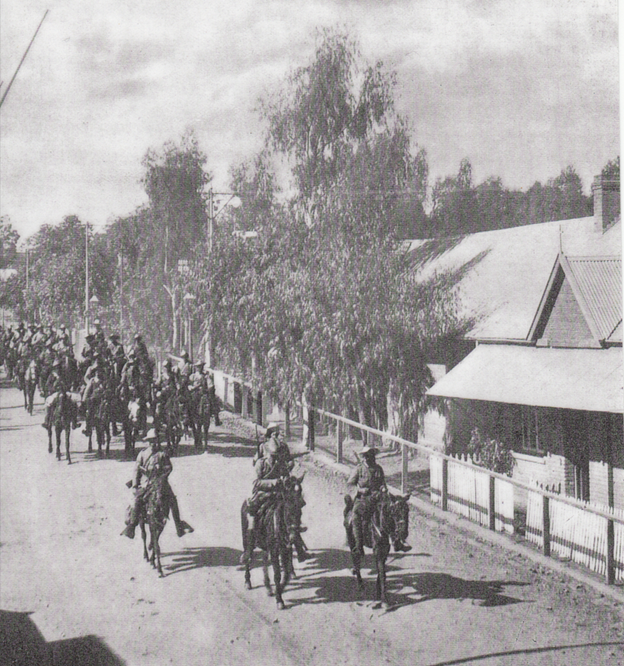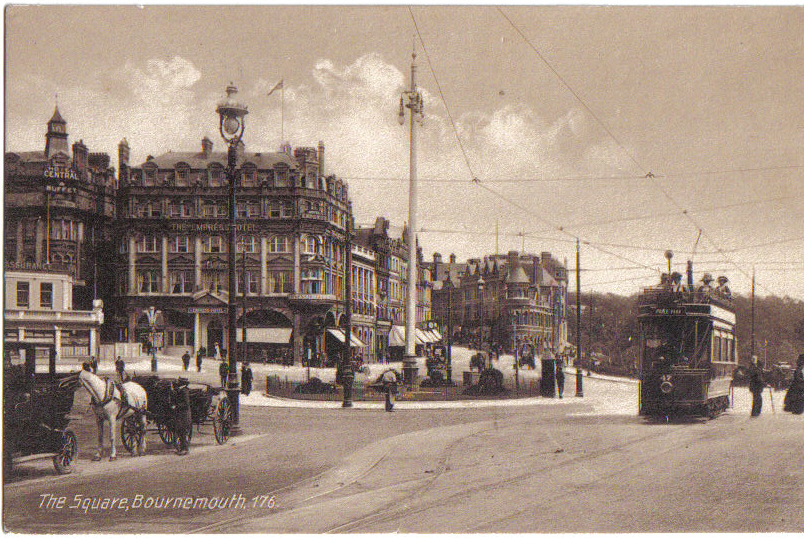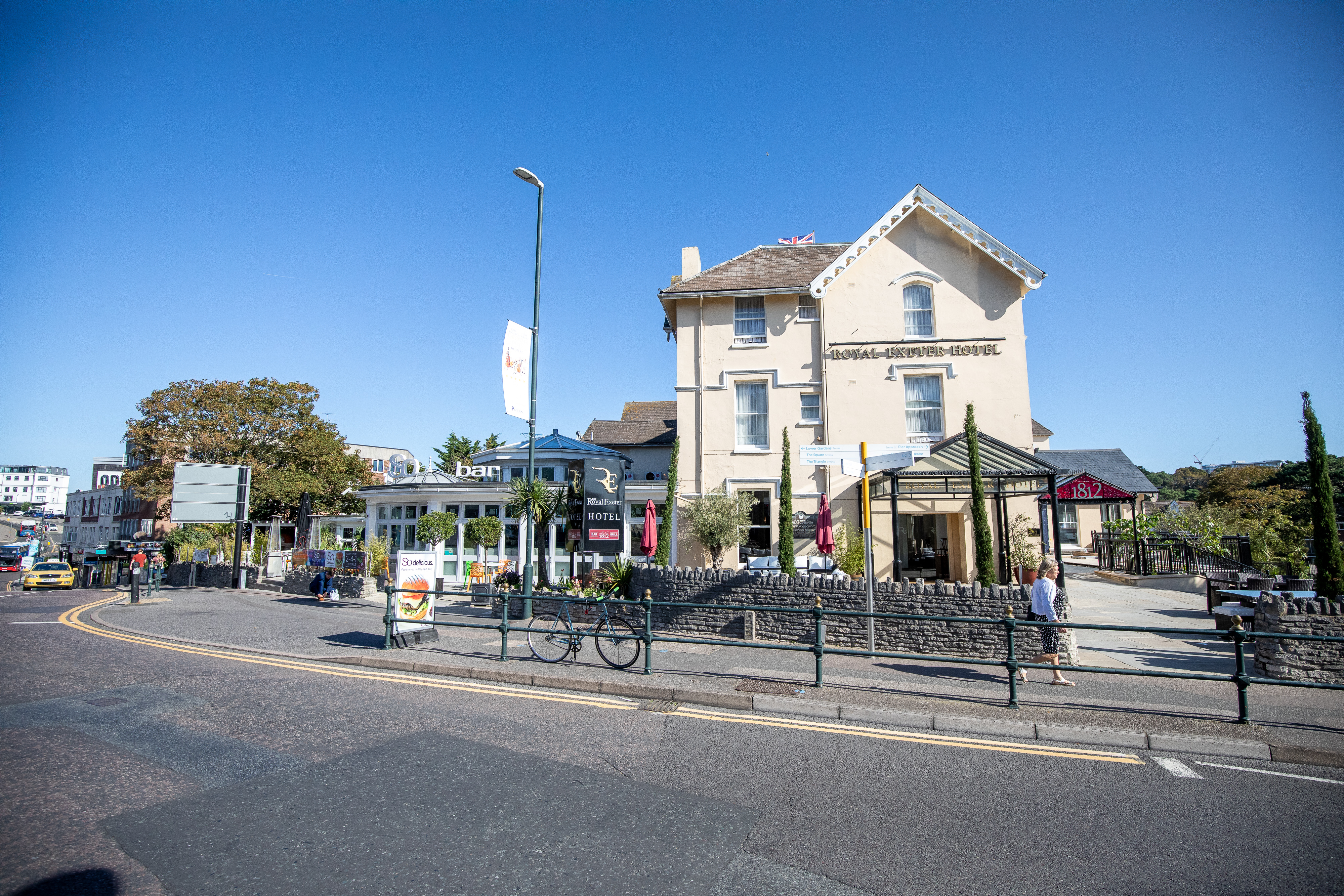|
Lewis Tregonwell
Lewis Dymoke Grosvenor Tregonwell ( ; 1758–1832) was a captain in the Dorset Yeomanry and a historic figure in the early development of what is now Bournemouth. Early life Born 1758 in Anderson, Dorset, Tregonwell lived at Cranborne Lodge as the squire. His second wife was Henrietta Portman. When Henrietta’s second child Grosvenor Tregonwell died, having been accidentally given a double dose of medicine, Henrietta sank into a melancholia, which resulted in the Tregonwells holidaying at Mudeford, near Christchurch, Hampshire, to recuperate. During their holiday they visited ‘Bourne’ which they found so delightful that they bought land, in 1810, built a house and so precipitated the growth of Bournemouth. More than 200 years earlier, Tregonwell’s direct ancestor, Henry Hastings, the eccentric Dorset sportsman (son of George Hastings, 4th Earl of Huntingdon), had briefly controlled the land that his great-great-great grandson bought, when he was lord of the manor of Chris ... [...More Info...] [...Related Items...] OR: [Wikipedia] [Google] [Baidu] |
Dorset Yeomanry
The Queen's Own Dorset Yeomanry was a yeomanry regiment of the British Army founded in 1794 as the Dorsetshire Regiment of Volunteer Yeomanry Cavalry in response to the growing threat of invasion during the Napoleonic wars. It gained its first royal association in 1833 as The Princess Victoria's Regiment of Dorset Yeomanry Cavalry, and its second, in 1843, as the Queen's Own Regiment of Dorset Yeomanry Cavalry. History Formation and early history Under threat of invasion by the French Revolutionary government from 1793, and with insufficient military forces to repulse such an attack, the British government under William Pitt the Younger decided in 1794 to increase the Militia and to form corps of volunteers for the defence of the country. The mounted arm of the volunteers became known as the "Gentlemen and Yeomanry Cavalry". The Dorset Yeomanry was first raised on 9 May 1794 as the Dorsetshire Regiment of Volunteer Yeomanry Cavalry of six troops. In 1796, it became the ... [...More Info...] [...Related Items...] OR: [Wikipedia] [Google] [Baidu] |
Queen's Own Dorset Yeomanry Officers
Queens is a borough of New York City. Queens or Queen's may also refer to: Arts and entertainment * Queens (group), a Polish musical group * "Queens" (Saara Aalto song), 2018 * ''Queens'' (novel), by Stephen Pickles, 1984 * "Queens", a song by Caravan Palace from '' Panic'', 2012 * ''The Queens'', the third novel in a planned trilogy in the Ender's Game series * ''Queens'' (film), 2005 * ''The Queens'' (film), a 2015 Chinese romance film based on the novel of the same name * ''Queens'' (American TV series), an American musical drama television series 2021–2022 * ''Queen's'' (TV series), 2007 * ''The Queens'' (TV series), a 2008 Chinese historical drama * '' Queens: The Virgin and the Martyr'', a Spanish and British historical drama television series * Queen's Theatre (other) Places * Queens, West Virginia, U.S. * Queens (electoral district), the name of several Canadian districts * Queens County (other) * Region of Queens Municipality, Nova Scotia, ... [...More Info...] [...Related Items...] OR: [Wikipedia] [Google] [Baidu] |
Deputy Lieutenants Of Dorset
Deputy or depute may refer to: * Steward (office) * Khalifa, an Arabic title that can signify "deputy" * Deputy (legislator), a legislator in many countries and regions, including: ** A member of a Chamber of Deputies, for example in Italy, Spain, Argentina, or Brazil. ** A member of a National Assembly, as in Costa Rica, France, Pakistan, Poland or Quebec. ** A member of the Dáil Éireann (Lower House of the parliament of the Republic of Ireland) ** A member of the States of Guernsey or the States of Jersey elected by a parish or district ** Deputy (Acadian), a position in 18th-century Nova Scotia, Canada * Deputy Führer, a title for the deputy head of the Nazi Party * A subordinate ** Deputy premier, a subordinate of the Premier and next-in-command in the cabinet of the Soviet Union and its successor countries, including: *** First Deputy Premier of the Soviet Union *** Deputy Premier of the Soviet Union, a subordinate of the Premier and the First Deputy Premier and third-i ... [...More Info...] [...Related Items...] OR: [Wikipedia] [Google] [Baidu] |
History Of Bournemouth
The history of Bournemouth and human settlement in the surrounding area goes back for thousands of years. Bournemouth is a coastal city on the island of Great Britain in Dorset, England, United Kingdom. Before Inclosure In 1800, the area was largely a remote and barren heathland, used only by smugglers – most notably Isaac Gulliver, now considered one of the founding fathers of Bournemouth – and revenue troops. 'Bourne Heath' was also known as Wallis Down in the north and Little Down in the south and east, and was part of the Great Heath of central Dorset which extended as far as Dorchester. To the east was Christchurch, to the west was Poole and to the north east was the River Stour. There were villages at Kinson, Throop, Holdenhurst (where the oldest dwelling is located) and Iford and a handful of buildings at Pokesdown but the area between these communities was just a wilderness of pine trees, gorse, ferns and heather. The area now called central Bournemouth and th ... [...More Info...] [...Related Items...] OR: [Wikipedia] [Google] [Baidu] |
Earl Of Malmesbury
Earl of Malmesbury is a title in the Peerage of Great Britain. It was created in 1800 for the diplomat James Harris, 1st Baron Malmesbury. The son of the grammarian and politician James Harris, he served as Ambassador to Spain, Prussia, Russia and France and also represented Christchurch in the House of Commons. Harris had been created Baron Malmesbury, of Malmesbury in the County of Wiltshire, in 1788. He was made Viscount FitzHarris, of Hurn Court in the County of Southampton, at the same time as he was given the earldom. The earldom and viscountcy were the last creations in the peerage of Great Britain, future titles being made in the peerage of the United Kingdom which took effect three days later. He was succeeded by his eldest son, the second Earl. He sat as Member of Parliament for Helston, Horsham, Heytesbury and Wilton. His eldest son, the third Earl, was a prominent Conservative politician. He served as Foreign Secretary in 1852 and from 1858 to 1859 and was also Lor ... [...More Info...] [...Related Items...] OR: [Wikipedia] [Google] [Baidu] |
Mayor Of Bournemouth
The following were mayors of Bournemouth, Dorset, England, Before 1974, Bournemouth was in the county of Hampshire: *1890 Thomas James Hankinson the first mayor *1891 Edward Wise Rebbeck *1892 Henry Newlyn *1893 George Merriman Hirons *1894 Merton Russell-Cotes *1895 Henry Newlyn *1896 James Atkinson Hosker *1897 William Mattocks *1898 William Hoare *1899 John Clark Webber *1900 George Joseph Lawson *1901 George Frost *19021904 John Elmes Beale *19051906 John Aldridge Parsons *19071909 George Edward Bridge *1910 Charles Hunt *19111913 Henry Seymour McCalmont Hill *1914 James Druitt *19151916 Henry Robson *19171918 Edward Ernest Bishop *19191922 Charles Henry Cartwright *1923 (part year) Thomas Bodley Scott (died in office) *1923 (part year)1924 Frederick Skinner Mate *19251927 Harry John Thwaites *1928 Sir Charles Henry Cartwright (4th term) *19291931 Percy May Bright *19321934 John Robert Edgecombe *1935 Henry George Harris *1936 Thomas Victor Rebbeck *1937 John Bennett Cole B ... [...More Info...] [...Related Items...] OR: [Wikipedia] [Google] [Baidu] |
Royal Exeter Hotel
The Royal Exeter Hotel is a Grade II listed building in Bournemouth, Dorset. It stands opposite the Bournemouth International Centre. History A wing of the hotel was originally built as a house for Lewis Tregonwell, the founder of Bournemouth Bournemouth () is a coastal resort town in the Bournemouth, Christchurch and Poole council area of Dorset, England. At the 2011 census, the town had a population of 183,491, making it the largest town in Dorset. It is situated on the Southern .... References {{Coord, 50.71744, -1.8793, display=title Hotels in Dorset Buildings and structures in Bournemouth Buildings and structures completed in 1812 Regency architecture in England Grade II listed buildings in Dorset Hotel buildings completed in 1812 ... [...More Info...] [...Related Items...] OR: [Wikipedia] [Google] [Baidu] |
Lord Of The Manor
Lord of the Manor is a title that, in Anglo-Saxon England, referred to the landholder of a rural estate. The lord enjoyed manorial rights (the rights to establish and occupy a residence, known as the manor house and demesne) as well as seignory, the right to grant or draw benefit from the estate. The title continues in modern England and Wales as a legally recognised form of property that can be held independently of its historical rights. It may belong entirely to one person or be a moiety shared with other people. A title similar to such a lordship is known in French as ''Sieur'' or , in German, (Kaleagasi) in Turkish, in Norwegian and Swedish, in Welsh, in Dutch, and or in Italian. Types Historically a lord of the manor could either be a tenant-in-chief if he held a capital manor directly from the Crown, or a mesne lord if he was the vassal of another lord. The origins of the lordship of manors arose in the Anglo-Saxon system of manorialism. Following ... [...More Info...] [...Related Items...] OR: [Wikipedia] [Google] [Baidu] |
George Ivison Tapps
Sir George Ivison Tapps, 1st Baronet (5 January 1753 – 15 March 1835) was a British landowner and developer involved in the founding of Bournemouth. Tapps inherited some of the estates, including Hinton Admiral, which formerly belonged to Sir Peter Mews of Hinton Admiral, from his cousin, Joseph Jarvis Clerke, when the latter died without issue in 1778. In so doing he became Lord of the Manors of Hinton Admiral, Christchurch and Westover. He was also appointed High Sheriff of Hampshire in 1793. Tapps was widely known as a "wilful and hard living confidant" of the Prince of Wales (later the Prince Regent), the future King George IV. In the wake of the Christchurch Inclosure Act 1802, Tapps purchased in what is now the borough of Bournemouth for £1,050 (1,000 guineas). As lord of the manor he was also trustee for the areas set aside as common land, for cottage dwellers to dig for turf and suchlike. In 1809 he opened a public house called The Tapps Arms (later renamed Th ... [...More Info...] [...Related Items...] OR: [Wikipedia] [Google] [Baidu] |
Battle Of Trafalgar
The Battle of Trafalgar (21 October 1805) was a naval battle, naval engagement between the British Royal Navy and the combined fleets of the French Navy, French and Spanish Navy, Spanish Navies during the War of the Third Coalition (August–December 1805) of the Napoleonic Wars (1803–1815). As part of Napoleon's plans to invade England, the French and Spanish fleets combined to take control of the English Channel and provide the Grande Armée safe passage. The allied fleet, under the command of the French admiral, Pierre-Charles Villeneuve, sailed from the port of Cádiz in the south of Spain on 18 October 1805. They encountered the British fleet under Horatio Nelson, 1st Viscount Nelson, Lord Nelson, recently assembled to meet this threat, in the Atlantic Ocean along the southwest coast of Spain, off Cape Trafalgar. Nelson was outnumbered, with 27 British Ship of the line, ships of the line to 33 allied ships including the largest warship in either fleet, the Spanish ''Span ... [...More Info...] [...Related Items...] OR: [Wikipedia] [Google] [Baidu] |
Justice Of The Peace
A justice of the peace (JP) is a judicial officer of a lower or '' puisne'' court, elected or appointed by means of a commission (letters patent) to keep the peace. In past centuries the term commissioner of the peace was often used with the same meaning. Depending on the jurisdiction, such justices dispense summary justice or merely deal with local administrative applications in common law jurisdictions. Justices of the peace are appointed or elected from the citizens of the jurisdiction in which they serve, and are (or were) usually not required to have any formal legal education in order to qualify for the office. Some jurisdictions have varying forms of training for JPs. History In 1195, Richard I ("the Lionheart") of England and his Minister Hubert Walter commissioned certain knights to preserve the peace in unruly areas. They were responsible to the King in ensuring that the law was upheld and preserving the " King's peace". Therefore, they were known as "keepers of th ... [...More Info...] [...Related Items...] OR: [Wikipedia] [Google] [Baidu] |






